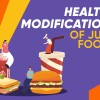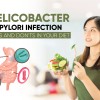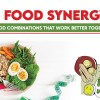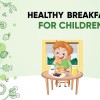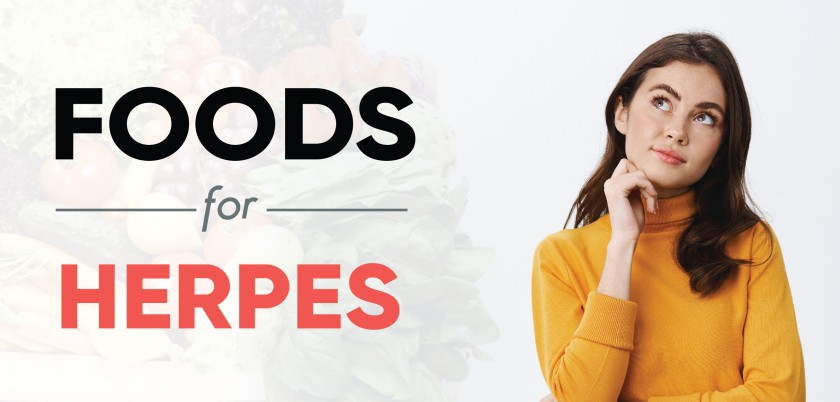
Food for herpes
Herpes simplex virus (HSV) refers to the skin infections caused by two viruses - HSV-1 or HSV-2 and it has no cure, just like other viruses. Whenever herpes outbreak occurs, it is followed by inflammation, stinging, swelling and itching on the blisters / cold sores formed in the mouth or genitals. Prevention from the infection's outbreak is not possible. But by adding certain foods in your diet and lifestyle management, you can get some relief during the outbreak. For body to respond well to the outbreak, you also need a well-developed immune system. Changing your dietary habits has shown to prevent recent outbreaks. Few guidelines to be followed while planning a herpes patient diet are-
1. Low refined carbohydrate intake - Persons infected with HSV have seen that consuming refined sugars in excess via sweets makes herpetic lesions to reoccur. So those individuals who feel that eating sweets causes an outbreak to them hould refrain from its consumption. If allergenic foods are repeatedly consumed, HSV becomes active and stays for lesser time in its dormant state.
2. Increase lysine / arginine ratio - L - lysine is an essential amino acid that body can't synthesise and need to be included in the diet while arginine is a semi-essential amino acid, which means body makes on its own as well as it is needed through food sources during certain life stages. The crux of strategising a diet plan in herpes simplex virus to reduce the outbreaks and their severity is to have more lysine and avoid arginine in the diet that is have foods that have high lysine to arginine ratio. This is because the proteins produced by HSV contain more arginine and less lysine.
3. Increase Lysine bioavailability - Also to make lysine more bioavailable from food sources, boiling and poaching of protein-rich food is more beneficia rather than grilling, broiling or frying them.
4. Balancing out arginine and lysine in meals - To avoid herpes attacks, balance out the high-arginine foods with high-lysine foods. A classic combination is eating brown rice with cooked dried beans. While brown rice is high in arginine (190 mg), the dried beans have an excess of of lysine (279 mg), which compensates for the lack of lysine in the brown rice. Similarly Popcorn has a high argine to lysine ratio, but those prone to herpes can still enjoy it. After popping, sprinkle with Nutritional Yeast. This adds a cheesy flavor to the popcorn. The arginine is neutralized because one tablespoon of nutritional yeast contains 190 mg more lysine than arginine.
Foods to be allowed -
• Antioxidant rich vegetables - Antioxidants in vegetables boost the immune system and thereby prevent outbreaks. Also their lysine content is more than arginine amino acid such as -
1. Kale (Lysine : arginine - 197/183)
2. Spinach (Lysine : arginine - 178/163)
3. Cauliflower (Lysine : arginine - 108/96)
4. Tomato (Lysine : arginine - 33/21)
5. Bananas (Lysine : arginine - 157/154)
6. Beetroot (Lysine : arginine - 53/22)
• Consume more cruciferous vegetables- A natural component of various cruciferous vegetables is indole-3-carbinol (I3C). Adding such foods interferes with Herpes virus replication as it is an antagonist of HSV cell cycle. So include these vegetables such as -
1. Broccoli (Lysine : arginine - 139/145)
2. Cabbage (Lysine : arginine - 57/68)
3. Cauliflower (Lysine : arginine - 108/96)
4. Mustard greens
5. Turnips (Lysine : arginine - 72/47)
6. Brussels sprouts (Lysine : arginine - 148/202)
(Note - High arginine can be balanced out with lysine rich foods)
• Omega - 3 fatty acid rich foods - They help in healing inflammatory conditions and boost the immune system. They also have more lysine than arginine such as -
1. Salmon (Lysine : arginine - 1823/1176)
2. Mackerel (Lysine : arginine - 1705/1113)
3. Avocados (Lysine : arginine - 347/218)
• Protein rich foods - Protein foods are responsible for building a healthy immune system and thereby prevent herpes outbreaks such as -
1. Eggs (Lysine : arginine - 369/349)
2. Oats (Lysine : arginine - 33/62)
3. Yoghurt (Lysine : arginine - 311/104)
4. Buttermilk (Lysine : arginine - 554/252)
5. Cheese (Lysine : arginine - 696/393)
6. Soybeans
7. Chicken (legs) (Lysine : arginine - 2138/1636)
8. Tuna (Lysine : arginine - 2715/1769)
9. Turkey (Lysine : arginine - 1967/1522)
10. Beef (Lysine : arginine - 4807/3978)
• Vitamin C rich foods - Time between herpes outbreaks is prolonged by the consumption of Vitamin C and it also heals the herpes lesions quickly.
They also have more lysine content.
1. Bell peppers
2. Strawberries
3. Apricots (Lysine : arginine - 451/210)
4. Apricots dried (Lysine : arginine - 1272/700)
5. Orange (Lysine : arginine - 68/94)
6. Mango (Lysine : arginine - 141/65)
7. Papaya (Lysine : arginine - 83/33)
8. Watermelon (Lysine : arginine - 123/117)
• Zinc rich sources - Adding zinc in the diet reduces the number of herpes outbreaks.
You can either add zinc supplement to the diet or add zinc rich foods such as -
1. Wheat germ (Lysine : arginine - 369/497)
2. Chickpeas
3. Lamb
4. Pork (leg) (Lysine:arginine - 8315/6090)
• Vitamin B complex rich foods - The sources of this immune building vitamin are -
1. Green beans (Lysine : arginine - 415/331)
2. Eggs (Lysine : arginine - 369/349)
3. Broccoli (Lysine : arginine - 139/145)
4. Spinach (Lysine : arginine - 178/163)
Foods to be restricted -
• Avoidance of acidic food - Such foods break the cold blisters before their healing and need to be avoided such as -
1. Fruit juice
2. Beer
3. Sodas
4. Processed drinks
• Avoidance of foods containing arginine - They help in virus replication so avoid this amino acid whose sources are -
1. Chocolate
2. Red wine
3. Hazelnuts (Lysine : arginine - 340/1837)
4. Peanuts (Lysine : arginine - 1006/3506)
5. Almonds (Lysine : arginine - 1332/4986)
6. Cashews (Lysine : arginine - 153/294)
7. Grapes (Lysine : arginine - 15/48)
8. Blueberries (Lysine : arginine - 11/35)
9. Blackberries (Lysine : arginine - 11/34)
10. Coffee
11. Flaxseeds
12. Chia seeds
• Avoidance of refined sugars - People have seen more outbreaks with sugar ingestion so it is best avoided.
Maintaining overall health contributes to a healthy immune system which will enable your body to respond to recurrences. Overall health includes a healthy diet, exercise, enough sleep and the minimal use of alcohol, cigarettes and recreational drugs.

